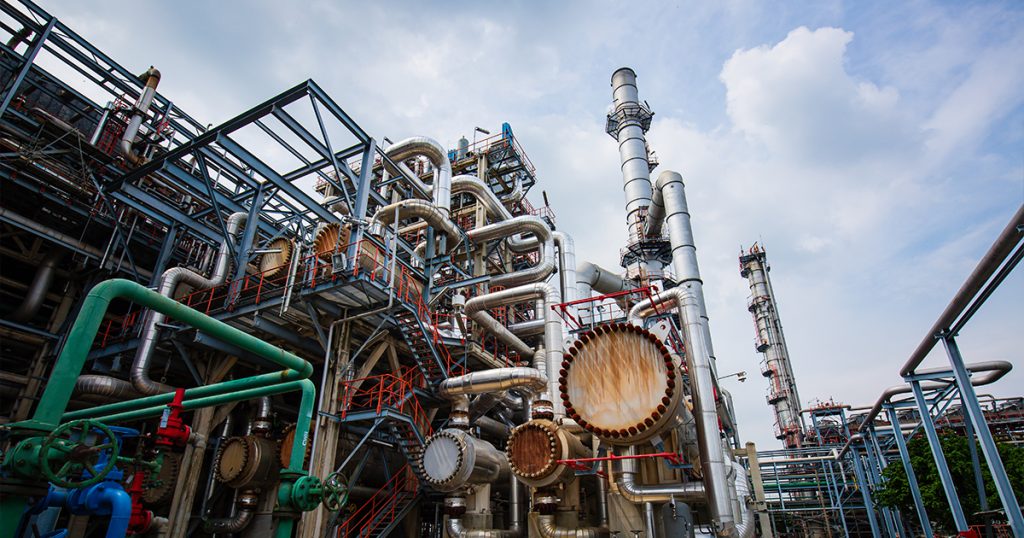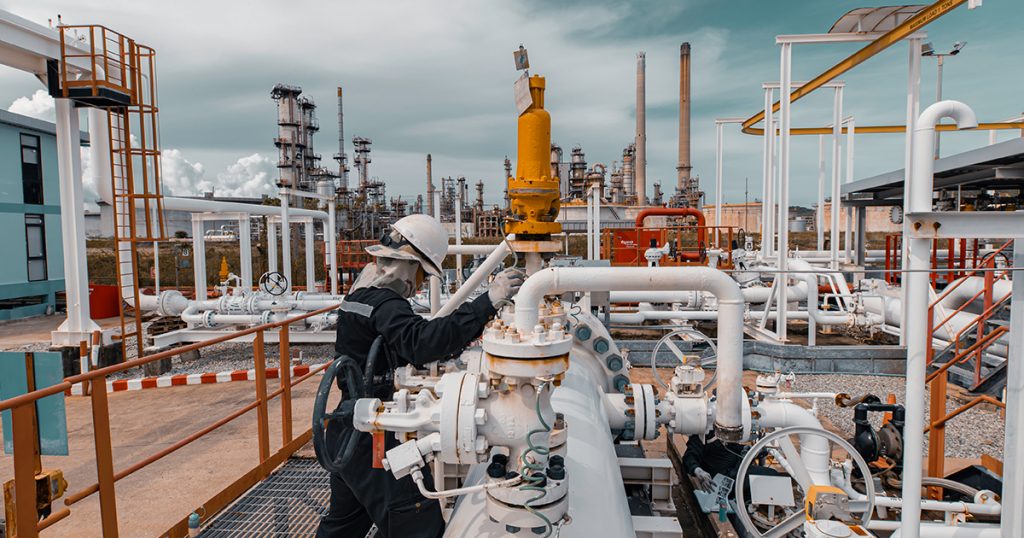The Oil Refineries erection commissioning in Oman phase represents a pivotal milestone in the nation’s expanding energy infrastructure. As global energy demands continue to surge, Oman’s commitment to refining excellence requires a seamless transition from design and construction to fully operational plants. This critical phase ensures that every system, machine, and control mechanism functions precisely as intended, transforming static structures into high-performing refineries that can process crude oil into valuable fuels and petrochemical feedstocks efficiently and safely.
Erection and commissioning are more than mechanical checklists, they mark the final integration of engineering precision, technical expertise, and operational readiness. When performed effectively, they lay the foundation for decades of safe, reliable, and optimized refinery performance. When mishandled, they can result in costly downtime, environmental risks, and long-term operational inefficiencies.
The Importance of Erection and Commissioning in Oil Refineries
Commissioning is the bridge between construction and continuous production. It ensures that mechanical, electrical, and control systems are installed correctly, tested thoroughly, and optimized for smooth operation. In the context of Oman’s rapidly growing downstream sector, a well-executed commissioning strategy is not just a technical step, it is a national priority to uphold production reliability and energy sustainability.
Each system, from crude distillation to vacuum units, hydrotreaters, and catalytic crackers, must undergo comprehensive testing to confirm performance within design parameters. Any deviation detected during this stage could impact yield, safety, or profitability.

Understanding the Process of Oil Refinery Development
An oil refinery’s commissioning process encompasses multiple interdependent steps that transform a constructed plant into an operational facility. Here’s how the process unfolds:
- Mechanical Completion:
Engineers verify that all pipelines, vessels, and equipment installations align with approved engineering drawings and standards. This includes pressure testing, torque checks, and weld inspections. - Pre-Commissioning Activities:
Systems are cleaned, flushed, and tested to remove debris, contaminants, or residual construction materials. Utilities such as steam, nitrogen, and water are tested for functionality. - Instrumentation and Control Verification:
Control systems are calibrated to ensure accurate readings. Logic testing confirms that all safety interlocks and emergency shutdowns operate flawlessly. - Commissioning Execution:
Each process unit is brought online in a controlled sequence. Flow rates, pressure, and temperatures are monitored closely to ensure safe transitions to operational mode. - Performance Testing and Handover:
Once stable operation is achieved, the plant undergoes performance validation before being handed over to operations teams with complete documentation.
Through this systematic approach, refineries minimize startup risks and establish a framework for long-term operational stability.
The Role of Mechanical Systems and Equipment
Oman’s refineries depend on a wide range of mechanical systems that convert raw hydrocarbons into refined products. Equipment such as pumps, compressors, turbines, and heat exchangers must function flawlessly.
For example, Oil Refineries rotary equipment, including compressors and pumps- ensures smooth flow and pressure control throughout the process units. Even minor misalignments or lubrication issues can lead to vibration, energy loss, or mechanical wear.
In contrast, Oil Refineries static equipment, such as reactors, columns, and pressure vessels, serve as the backbone of the process. These stationary components must withstand extreme temperatures and pressures while maintaining structural integrity over time.
Each piece of machinery undergoes rigorous inspection during commissioning, ensuring it meets global standards like ASME, API, and ISO before entering full operation.
Specialized Maintenance and Overhauling Practices
Effective maintenance is crucial for the longevity of refinery systems. Oil Refineries maintenance encompasses both preventive and predictive strategies designed to minimize unplanned outages and extend equipment life. Predictive technologies such as vibration analysis, infrared thermography, and oil condition monitoring are commonly employed in Oman’s refineries to detect early signs of wear or performance deviation.
In certain cases, systems require complete restoration through Oil Refineries overhauling – a process involving disassembly, inspection, and replacement of worn parts. Overhauling not only rejuvenates machinery performance but also ensures compliance with safety and environmental regulations. Proper documentation of these activities helps maintain operational transparency and readiness for audits.
The Commissioning Environment in Oman
Oman’s industrial landscape has evolved significantly over the past decade, emphasizing world-class infrastructure and technology integration. Major projects like the Duqm Refinery and Sohar Refinery Expansion have set new benchmarks for refinery erection and commissioning.
Within these large-scale projects, the Oil Refineries erection commissioning in Oman stage involves collaboration between engineering, procurement, and construction teams alongside specialized commissioning contractors. This integrated approach ensures that each mechanical, electrical, and control subsystem aligns perfectly with design expectations.
Furthermore, Oman’s regulatory framework enforces stringent HSE (Health, Safety, and Environment) standards, ensuring that commissioning teams adhere to best practices while minimizing environmental impact. This attention to safety and compliance makes Oman’s refining projects globally recognized for operational reliability and sustainability.
Optimizing Operations After Commissioning
Once a refinery achieves mechanical completion and functional readiness, the focus shifts to operational optimization. This includes fine-tuning process parameters, calibrating control loops, and improving energy efficiency through real-time data analysis.
A strong commissioning foundation supports continuous improvement by enabling operators to detect inefficiencies early and implement corrective actions promptly. For instance, advanced monitoring systems can adjust temperature and pressure levels to optimize yields without compromising safety or emissions standards.
By embedding digital analytics and predictive maintenance tools, Oman’s oil refineries are increasingly moving toward data-driven operation models that reduce costs and enhance performance.

Documentation and Knowledge Transfer
A well-documented commissioning process ensures compliance, knowledge continuity, and efficient future maintenance. Every inspection report, calibration certificate, and vendor manual is consolidated into a comprehensive handover dossier.
This documentation provides vital reference material for troubleshooting, audits, and continuous training initiatives.
Training is equally essential – engineers and operators undergo specialized programs covering control system operation, emergency response, and equipment maintenance. Through structured skill development, Oman’s refineries are building a technically adept workforce capable of managing high-performance industrial assets.
Long-Term Reliability and Sustainability
The long-term success of an oil refinery depends not just on commissioning but on sustaining its performance for decades. This involves periodic shutdowns, preventive maintenance, and technological upgrades to meet evolving environmental and efficiency standards.
Energy optimization, emission control, and process automation form the next frontier for Oman’s refining industry. Integrating renewable energy sources and carbon capture systems further strengthens Oman’s global competitiveness in sustainable oil processing.
The Oil Refineries erection commissioning in Oman stage therefore represents not only a milestone of technical achievement but a commitment to long-term industrial growth and energy innovation.
FAQs
Q1. What is the process of oil refinery?
The process involves distillation, conversion, treatment, and blending. Crude oil is separated into fractions, transformed into usable fuels, purified to remove impurities, and combined to meet market specifications.
Q2. What are the 5 basic refining processes?
They include distillation, cracking, reforming, treating, and blending-each designed to maximize fuel yield and quality.
Q3. Which three fundamental steps make up oil refining?
Separation, conversion, and treatment. These stages prepare crude oil for final use as petrol, diesel, or lubricants.
Q4. What are the main components of an oil refinery?
Major components include crude distillation units, heat exchangers, reactors, storage tanks, and control systems.
Q5. What is overhaul in oil and gas
Overhaul refers to disassembling and refurbishing machinery to restore it to optimal performance levels.
Q6. What are the three stages of crude oil refinement?
Primary (distillation), secondary (conversion), and tertiary (blending and finishing).
Q7. What is the lifespan of an oil refinery?
A well-maintained refinery can operate efficiently for 40–50 years, with periodic upgrades and maintenance.
Q8. What is static equipment in a refinery?
Static equipment includes vessels, exchangers, and tanks that handle fluids without moving components.
Q9. What is maintenance in a refinery?
It involves regular inspections, cleaning, lubrication, and part replacements to ensure continuous, safe operation.
Q10. What five items come from oil refinement?
Refineries produce common products from crude oil, including gasoline, diesel, jet fuel, kerosene, and liquefied petroleum gas (LPG).
Strategic Takeaways for Industrial Leaders
Oman’s refinery projects continue to strengthen the country’s position in the global energy supply chain. Each phase, from design to commissioning-reflects a dedication to safety, innovation, and technical mastery.
With its focus on operational excellence, safety compliance, and sustainability, the Oil Refineries erection commissioning in Oman process defines the benchmark for industrial progress in the region.
